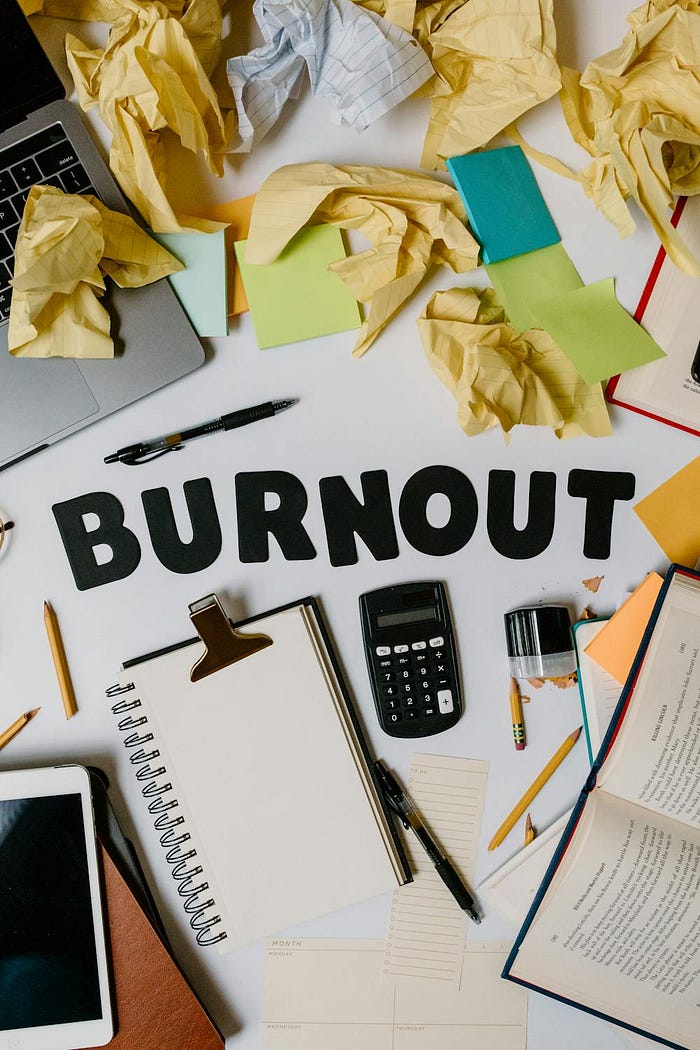
You Are Burned Out And Don`t Even Know It
“It’s not the load that breaks you down, it’s the way you carry it.” -Lou Holtz
Lou Holtz’s poignant quote serves as a powerful reminder that it’s not the challenges we face that determine our fate, but rather how we choose to navigate them. Many individuals find themselves overwhelmed by the demands of work, family, and personal responsibilities, leading to the insidious phenomenon known as burnout.
However, by adopting a resilient mindset and implementing effective coping strategies, it’s possible to carry the weight of burnout without succumbing to its detrimental effects.
Burnout is more than just feeling tired or stressed — it’s a state of chronic physical, emotional, and mental exhaustion caused by prolonged exposure to stressors. It often stems from a combination of factors, including excessive workload, lack of control, and insufficient support, and can have profound consequences on one’s health, relationships, and overall well-being.
Burnout has become increasingly prevalent, yet often goes unnoticed until it reaches a critical point.
Many people are caught in the whirlwind of daily responsibilities, unaware that they are teetering on the brink of burnout. That is why I want to explore the subtle signs of burnout that may fly under the radar and discuss strategies for recognizing and addressing them before they escalate.
Can you find yourself in any of these symptoms?
- Physical Exhaustion:
One of the most evident signs of burnout is physical exhaustion that persists despite adequate rest. You may find yourself constantly fatigued, even after a full night’s sleep, and experience a lack of energy to engage in activities you once enjoyed.
- Emotional Drain:
Burnout often manifests as emotional exhaustion, leaving you feeling depleted and emotionally numb. You may find it challenging to muster enthusiasm or motivation for tasks that once sparked joy, and may experience feelings of cynicism or detachment.
- Reduced Performance:
As burnout takes its toll, you may notice a decline in your performance at work or in other areas of your life. Tasks that were once manageable may now feel overwhelming, and you may struggle to concentrate or make decisions effectively.
- Increased Irritability:
Burnout can lead to heightened levels of irritability and frustration, causing you to react more strongly to minor stressors or setbacks. You may find yourself snapping at colleagues, friends, or family members over trivial matters, further exacerbating feelings of guilt or inadequacy.
- Neglecting Self-Care:
When experiencing burnout, self-care often takes a backseat as you prioritize meeting external demands and obligations. You may neglect healthy habits such as exercise, proper nutrition, and relaxation, further perpetuating the cycle of burnout.
Recognizing that you may be experiencing burnout can be a sobering realization, but it’s also the first step toward reclaiming your well-being and vitality. If you resonate with any of the symptoms mentioned above, it’s essential to prioritize self-care and take proactive steps to address burnout before it escalates further.
The journey to overcoming burnout begins with self-compassion and self-awareness.
Acknowledge that burnout is not a sign of weakness but rather a natural response to prolonged stress and overwhelm.
Give yourself permission to prioritize your own needs and make self-care a non-negotiable part of your daily routine.
Start by setting boundaries around your time and energy, both at work and in your personal life. Learn to say no to additional commitments that will only contribute to your feelings of overwhelm, and delegate tasks whenever possible. Remember that it’s okay to ask for help and seek support from friends, family, or mental health professionals.
In addition to setting boundaries, prioritize activities that nourish your body, mind, and spirit. Make time for regular exercise, adequate sleep, and healthy eating habits to replenish your physical energy. Engage in activities that bring you joy and relaxation, whether it’s spending time outdoors, practicing mindfulness meditation, or pursuing creative hobbies.
It’s also important to address the underlying sources of stress and burnout in your life. Take a step back and evaluate your priorities, values, and goals, and consider whether any adjustments are needed to align your life with what truly matters to you.
Seek out opportunities for growth and fulfillment, both personally and professionally, and don’t be afraid to make changes that support your well-being.
Finally, be patient and compassionate with yourself as you navigate the process of overcoming burnout. Recovery takes time and effort, but with dedication and perseverance, you can emerge from burnout stronger, more resilient, and better equipped to thrive in all areas of your life. Remember, you have the power to carry your load in a way that nourishes and sustains you, rather than breaking you down.
